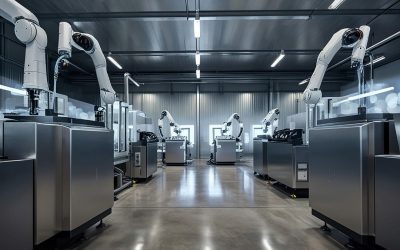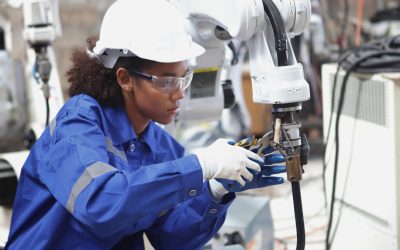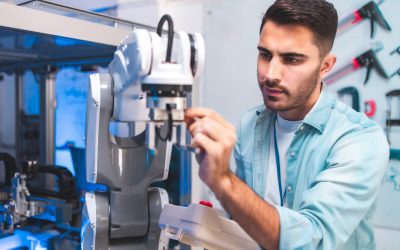When COVID-19 hit, it hit people and businesses hard, and it hit us all fast.
Suddenly, the world found itself thrown into turmoil with an immediate shortage of the items we needed most – hand sanitisers, face masks, plastic screening, and probably most importantly, ventilators.
However, UK manufacturers of all shapes and sizes rose to the, dare we say it…unprecedented challenge of COVID-19, throwing their weight behind the fight. Setting up emergency operations and, for many moving into unfamiliar territory.
Manufacturing became an industry that immediately came together to share expertise and resources – all made possible through robust automated manufacturing processes.
What did manufacture companies bring to the table?
Capability, competence, and flexibility.
Scores of manufacturers from across the UK changed their processes. Adjusting their production lines and amending their systems to help keep front line services moving.
Producing vital PPE, ventilators, face masks, hand sanitisers, plastic shields, crucial parts used for life-saving equipment – British manufacturers asked how they could help, and they got to work.
Banks came forward to offer ventilator manufacturers fast track loan applications, cheaper interest rates, and extended repayment terms if they could help in the fight against COVID.
Fashion houses began manufacturing surgical masks at pace and distributing these even faster.
The ventilator consortium challenge was set up and acted as a call to arms to all UK manufacturers to change their production and support our NHS. A staggering 5,000 companies, including Innomech, stepped forward and offered their support.
Regearing factories and using precision machining to modify procedures, processes, designs, cut templates, assembly, and more. Manufacturers were soon able to produce, in volume, face shields and Perspex components as well as visors using 3D printing capabilities.
Suddenly UK manufacturers moved from small-scale PPE production to support the government and the UK, to now, in some cases, a single manufacturer distributing over 20,000 face shields per week due to demand.
The valued role of automation
Today, new innovative ventilator machines have been designed and advanced during this period – showing the sector’s creativity and innovation – preparing and arming the UK with a supply of devices available for any future pandemic.
For example, the Penlon ventilator, designed and manufactured during lockdown, is now CE kite marked and soon available to export overseas, opening up further opportunities and routes to growth for UK markets.
Fever screening solutions developed using thermal imaging to identify COVID sufferers – can now also be used in various situations and environments in the future.
At Innomech, we were proud to provide face visors to care homes during lockdown and support the Government call to provide more ventilators and 3D printing. We engaged in the Digital Government scheme recognising that uniting with others made us stronger in our support, which is why we also engaged with UKMFGUNITE. A collaborative network set up for UK manufacturers during the pandemic.
Run by manufacturers for manufacturers, this network bids to continue to bring communities together, to innovate as allies, build more robust networks, disciplines, and share information and advice.
The real value of manufacturing
2020 and certainly as we move into 2021 has highlighted the true value of manufacturing – it is what has held the economy and country together through some of the toughest of times.
The pandemic has shown the flexibility in our systems, manufacturing capabilities, and just what is achievable with the right manufacturing automation in place.
Securing jobs, protecting businesses, and fighting in the battle to keep everyone safe.
Manufacturing is evolving
Creating stability, increasing UK productivity, growing GDP, and focusing on relaying the foundation for our future operations are now the manufacturing sector’s clear focus.
Supporting growth and development now and in the future, we need to ensure our manufacturing capacity meets the economy’s needs in `normal` times but that it is also more readily prepared to meet any potential future crisis.
In doing so, we need to assess where investment is required, supporting businesses to upgrade production to meet extreme demand on short notice.
All through structure, planning, and carefully considered automation.
If you’re looking to invest in your manufacturing with automation and future-proofing your business, including bespoke automation, purpose-built machinery, systems integration, system upgrades, refurbishments, and more, speak to the professionals at Innomech.
The potential of the UK’s manufacturing industry is huge – make sure you’re at the top of your game by investing in your processes for the future.




